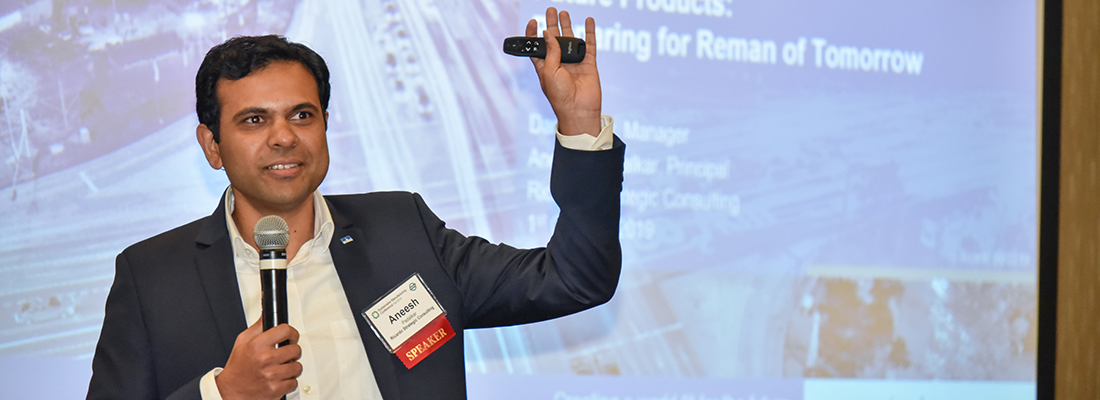Products of the future - and preparing for the future of remanufacturing – were the topics on which Aneesh Padalkar, principal, and Dan Foster, manager, at Ricardo Strategic Consulting, shared their insights.
Padalkar cited a number of challenges remanufacturers are facing: from the rising cost of reman that is the result of advanced methods to increase fuel economy and reduce emissions, to the shortened life cycles of powertrains to increased complexity of small parts like starters, alternators, calipers and headlights.
The challenges do not end there. “The rapid influx of electric is opening up opportunities for service revenue and 4R [Reduce. Reuse. Reman. Recycle] strategies, but new skills are needed,” Foster said. However, remanufacturers will be challenged with long-term storage issues of batteries, the rapid pace of technological developments, the inability to get a supply of legacy parts and supplier IP issues.
Just how rapid the deployment of electric vehicles (EVs) will be is open to debate. Padalkar says that - depending on who you talk to - estimates are that EV use will grow 15% to 50% by 2030. “The onus will be on the reman community to come up with solutions to see if they can keep the TCO [total cost of ownership] for EVs low.” He explained that customers expect battery replacement to be less than $5,000 - but the reality today is that number is closer to $9,000.
Remanufacturers will need to familiarise themselves with the two kinds of battery failure: acute and capacity degradation. Not all batteries that failed because of capacity degradation can be refurbished.






